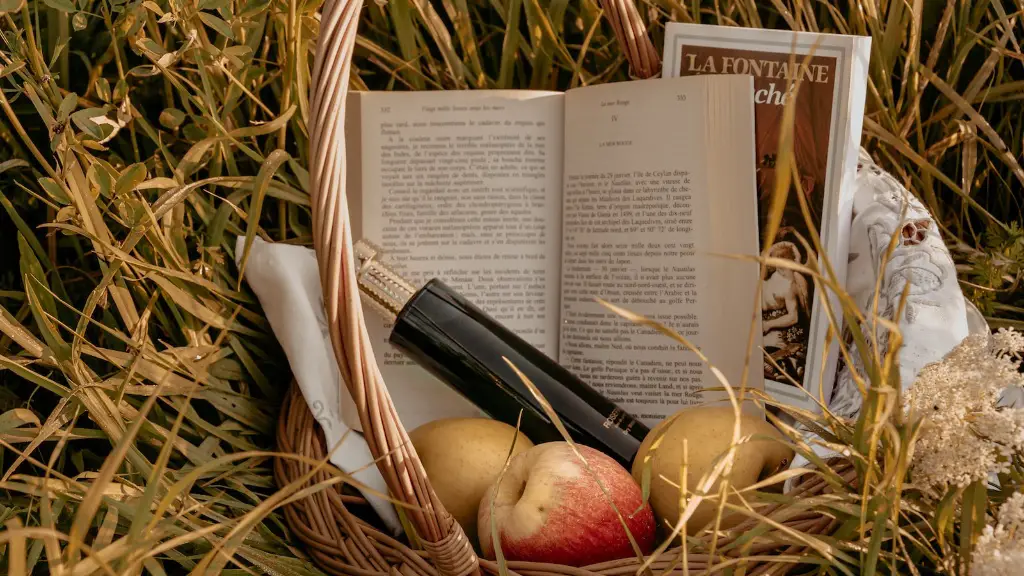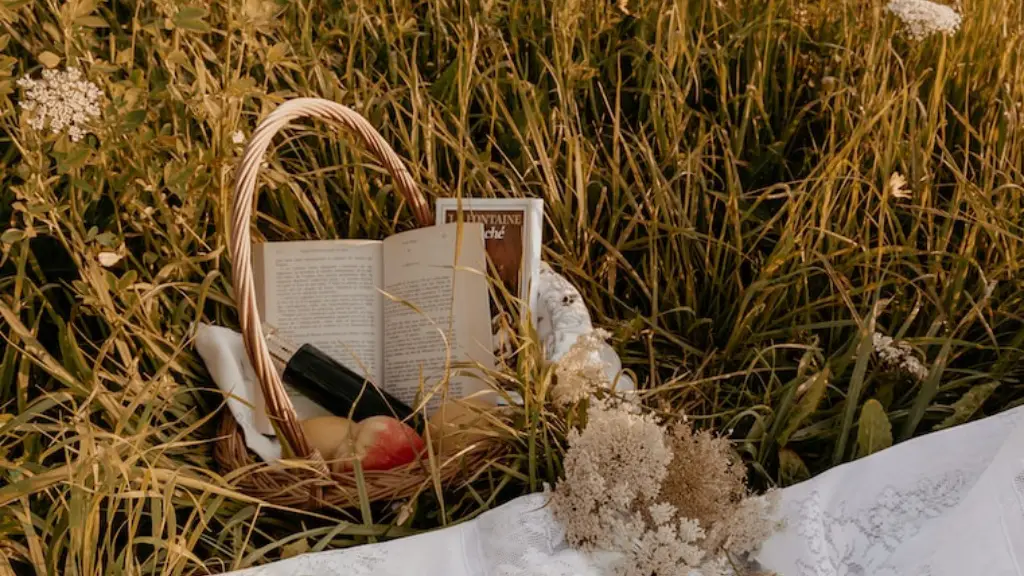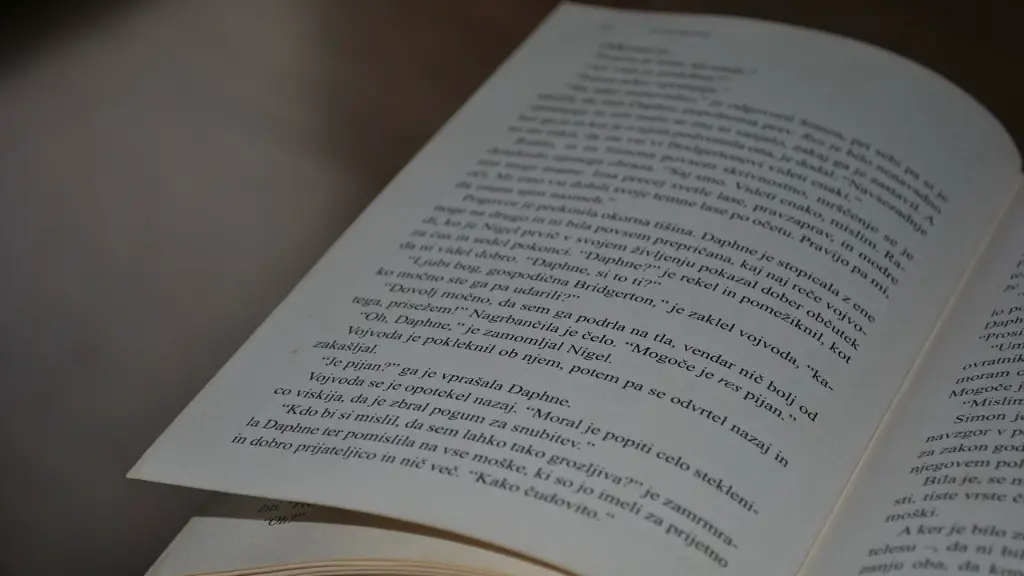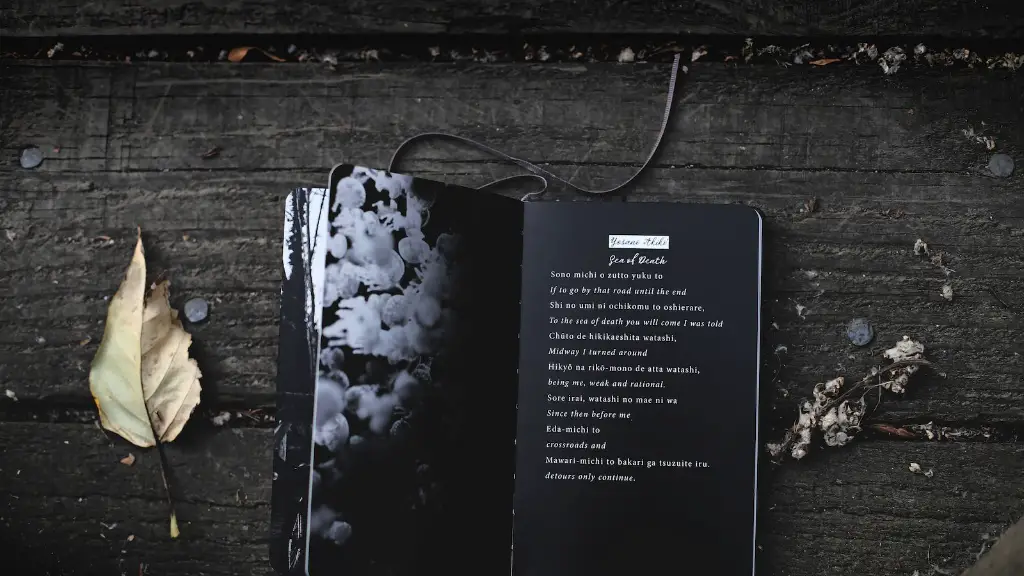Progressive poetry is a term used to talk about a type of poetry that challenges traditional norms and conventions. It can be seen as a movement or style that has been gradually gaining momentum over the past century. As in any progressive movement, thoughts and ideas are constantly developing and evolving. This can be seen in the way progressive poets often challenge and confront dominant social, political, religious and cultural conventions.
A key part of progressive poetry is its focus on the exploration of questions and issues that pertain to the broader context they are situated in. These poets are often keen to use their craft to raise awareness on topics that are often neglected or ignored in mainstream poetry. This often includes discussion of race, patriarchy, poverty, and environmental issues, as well as pushing for greater representation of underrepresented voices. In order to create meaningful change, progressive poets are often looking for ways to challenge the status quo by sparking dialogue and inspiring action.
One of the most celebrated progressive poets, Tymoteusz Karpowicz, often utilised the idea of ‘speaking truth to power’. He believed that the role of a progressive poet was not just to create thought-provoking pieces, but to use art to shed light on issues that were too often left in shadows. Karpowicz wrote on topics such as gender, power and even talked of the ‘social myths’ that were often sustained by oppression.
The main distinction between progressive and traditional poetry forms is how they approach seemingly ‘universal’ topics. Progressive poetry often looks to problematise commonly accepted beliefs by exploring complex and nuanced aspects of a particular topic. This often challenges the notion of a single ‘right’ answer, instead questioning and interrogating any absolutism.
An example of progressive poetry that challenges pre-existing beliefs can be seen in the work of Mahogany L. Browne. Her work challenges mainstream white narratives by speaking from her experience as a black woman. Rather than following traditional poetic forms, she pushes boundaries and often goes beyond the conventions of popular poetry styles. This is seen in her poem “Let It In”, which speaks on the journey of self-love, acceptance, and finding power in that acceptance. Browne encourages her readers to not be afraid to challenge social norms, and to view their own experiences as invaluable rather than invalid.
Another prominent progressive poet is Ama Josephine Budge. Her work is often centred around articulating and empowering stories of black survivors of violence. Her poem “Survival” reflects on the power of resilience, speaking of the courage that is found in being a survivor of extreme hardship. Instead of being categorised as a ‘victim’, Budge celebrates the ‘survivor’. This poem dives into an exploration on the strength that exists in being a resilient ‘survivor’, as well as the issues surrounding the skewed perception of validation found in pushing through intense hardships.
At the heart of progressive poetry is the idea of challenging and engaging with issues of a broader context. Ultimately, it looks to challenge fixed beliefs and false narratives by humanising and validating the stories that are not often given the spotlight in mainstream poetic forms. By engaging with questions and topics that are often ignored, progressive poets seek to empower, inspire and create meaningful change in the present and future.
Meaningful Reflection and Engagement
Progressive poets often challenge the traditional narrative by asking difficult questions, sparking meaningful dialogue and creating a space for deeper reflection. This type of poetry not only offers readers a chance to engage with different perspectives, but also pushes them to think critically about the status quo. This form of poetry allows readers to explore complex issues and its context in a more intimate way. As such, progressive poetry often seeks to foster empathy and understanding, bringing attention to realities that too often remain invisible.
One example of work that encourages readers to engage with complex issues, is the poem “Still I Rise” by Maya Angelou. This poem speaks of resilience, strength and resilience in the face of oppression and trauma. Angelou’s poetry speaks to the power of the individual, while also acknowledging the shared struggle of humanity. In her poem, Angelou emphasises the value of resilience, urging her readers to persevere against all odds. Ultimately, this poem creates an intimate space, where thoughts and emotions often left in the shadows are finally brought out into the light.
Furthermore, progressive poets often look beyond the surface to unearth truths and create a deeper connection between their readers and the subject. Take, for example, the work of Michael Houghton. His poems are full of imagery and complex language that reflect the nuances of lived experiences. His poem “Gentlemen” speaks of relationships, toxic masculinity and the repressive cycle of conformity. Through his simple but powerful words, Houghton’s poem speaks loudly of the importance of creating meaningful connections even in a world that often does its best to reject them.
The Reach of Progressive Poetry
The reach of progressive poetry is potentially wider than more established forms of poetry, as it often speaks directly to the lived experiences of readers. This type of poetry has the potential to truly impact the lives of its readers, as it offers them the opportunity to reflect and engage with difficult issues in a meaningful way. Progressive poets are often challenging the status quo and pushing for greater representation of underrepresented voices. Such poems often give readers the inspiration to find their voice and become a part of the conversation.
Another example of progressive poetry is the work of Saeed Jones. His writing speaks of topics such as love, race and oppression. His poem “Prelude to Bruise” tells the story of a queer black person living in a culture that often dismisses and rejects them. This poem speaks of the courage and strength that comes from embracing the ‘other’ and the power of creating one’s own narrative. Jones’ work speaks of the beauty and resilience that is often found in being an outsider. As such, it provides readers with an opportunity to reflect on the power of embracing one’s own identity.
In addition, progressive poetry can also be used to bring attention to specific causes and movement. A great example of this is the work of Audre Lorde. Often considered to have been a pioneer of intersectional feminism, she was a prominent civil rights activist who wrote using her rich experiences as a black queer woman. Her poem “The Black Unicorn” speaks of the power that comes from owning one’s identity and the strength that is often found in the ‘other’. Through her words, Lorde speaks of the power of rising up against oppression and celebrating the immense beauty of difference.
Creating Meaningful Change
One of the key functions of progressive poetry is to push for real and meaningful change. Progressive poets often challenge the status quo and encourage their readers to question the dominant views and opinions. By creating a space for meaningful dialogue, progressive poets can often inspire action, adding a fresh and unique perspective to the conversation.
An example of this can be found in the work of William Carlos Williams. His poem “The Yachts” speaks of inequality and class struggles, but also offers a powerful critique on the power structures of our society. Through his simple but insightful words, Williams speaks of the importance of questioning the status quo and refusing to comply to oppressive structures. His poem offers readers an opportunity to reflect on the power of working together to create a fairer society for all.
Furthermore, progressive poets have the potential to create real and meaningful change in the world. Poets such as Danez Smith are often pushing for greater representation of underrepresented voices, speaking on important topics such as racism, queer experience and mental health. Widening the discourse of poetry, their work speaks of the importance of taking action and creating meaningful change on a broader scale.
Summary
Overall, progressive poetry is a term used to describe a type of poetry that challenges the traditional norms and conventions. Rather than using dominant narratives, progressive poets often look to create a space for meaningful reflection by raising awareness on topics that are often neglected or ignored in mainstream poetry. Furthermore, progressive poets seek to challenge the status quo and push for greater representation of underrepresented voices. Ultimately, progressive poetry has the power to create real and meaningful change in the world, inspiring readers to become a part of the conversation and create a fairer society for all.




